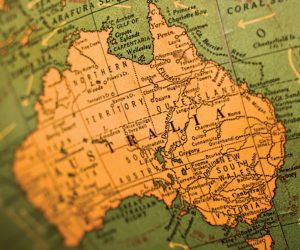Vulnerable Australians ‘force-fed’ gambling, alcohol ads on Facebook – CathNews

- by Admin
- November 10, 2024

Vulnerable Australians at high risk of gambling and alcohol issues are being “force fed” Facebook ads for that content, with experts claiming they are being targeted by social media marketing. Source: The Guardian.
A study by University of Queensland researchers found that gambling and alcohol ads can be served up many times in a short period to people at high risk of gambling or alcohol-related harms.
“This report is the tip of the iceberg in terms of what we know about how alcohol and gambling companies collect and use people’s data to then target them with their harmful and addictive products,” Giselle Newton, the chief investigator on the report, said.
The research, funded by VicHealth and the Foundation for Alcohol Research and Education (Fare), recruited 10 people who had experienced – or were at risk of harm from – alcohol and gambling products.
The study’s participants included people with high-risk alcohol use, high-risk gambling, and those trying to reduce their use of those products or recovering from such harms.
It found those 10 people had been “tagged” by Facebook with 89 different alcohol and gambling-related interests, allowing alcohol and gambling companies to target their advertising toward them.
The study also found 201 alcohol companies and 63 gambling companies had in turn shared data with Facebook about those people, which allowed further ad targeting.
The report said participants were aware their browsing history could be used to target online ads towards them, but were “particularly alarmed to learn that alcohol and gambling companies shared their data with Facebook to target them”.
The Albanese Government is under pressure to outline its long-awaited response to a report from the late Labor MP Peta Murphy, which recommended a full ban on online gambling ads.
Prime Minister Anthony Albanese has hosed down expectations of a full ad ban, with the Government’s response expected by year’s end.
FULL STORY
Vulnerable Australians ‘force-fed’ gambling and alcohol ads on Facebook, report finds (By Josh Butler, The Guardian)
The Latest News
-
December 22, 2024Forgotten man removes himself from Test talk
-
December 22, 2024Tiger Woods’ son Charlie makes a hole-in-one in the final round of the PNC Championship – Australian Golf Digest
-
December 22, 2024Tennis’ love match: Meet ‘Aussie’ Matteo Arnaldi and his Melburnian girlfriend
-
December 22, 2024GEORGIE PARKER: McSweeney was McStiff to get axed
-
December 22, 2024Chris Eubanks picks the ATP player he considers a real dark horse to win the Australian Open





